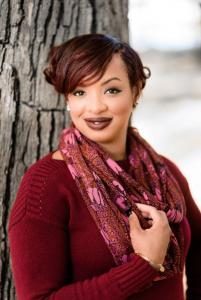Jane Grant Conference Room
330 Hendricks Hall
UO campus
Printable PDF
CSWS Works-in-Progress Talk: NOTE THE TIME CHANGE TO 10 A.M.
“Unpacking Pariah(s): The Black Queer Feminist Liberation Plot and the Politics of Black (Sexual) Articulation”
Shoniqua Roach, assistant professor, UO Department of Women’s, Gender and Sexuality Studies, will explore her research in a CSWS works-in-progress talk on Friday, January 26, 10 a.m. to 11:30 p.m. Her talk is titled, “Unpacking Pariah(s): The Black Queer Feminist Liberation Plot and the Politics of Black (Sexual) Articulation.” Priscilla Ovalle, associate professor, Department of Cinema Studies, will serve as the discussant.
Description of Research Talk
Both mainstream and academic critics responded warmly to Dee Rees’s feature-length film, Pariah. Mainstream critics hailed the 2011 release as a universal coming-of-age drama; an “African-American variation of a familiar story”; and a salient addition to a new black film movement. Equally celebratory, academic critics praised the film’s “universal appeal,” citing it as an important “cinematic contribution” to a wider genealogy of black lesbian image-making and a complex depiction of black queer womanhood. Few critics mentioned the 2007 short that Rees had made using the same title and basic story. Thus, they made no mention of the transformation of seventeen-year-old Alike’s mother, Audrey—a strict, religious, and overprotective mother in the 2007 short—into an irreparably homophobic black mother who served as one of the central impediments to Alike’s gender and sexual freedom in the 2011 feature. The addition of the homophobic black mother raises salient questions about Pariah, specifically, and the terms and conditions of contemporary black queer women’s cinematic visibility, generally. What are some of the racialized sexual logics underpinning Pariah? How does the addition of the homophobic black mother complicate considerations of Pariah as representationally subversive? Is black queer women’s cinematic visibility always already predicated on the condemnation of black mothers, or of the black community more broadly, as irredeemably sexually regressive?
This talk offers a close, comparative analysis of the Pariah short and feature films, centering specifically on the differences between the character and function of Audrey in each film’s depiction of Alike’s pivotal sexual coming out scene. I reflect on the feature-length film’s shift from Alike’s father, Arthur, to her mother Audrey as the irreparably homophobic parent not to decry yet another representation of the bad black mother trope, to compare the film to more ostensibly positive visual representations of black (queer) womanhood, to suggest that the film either fails or succeeds in its move from a short to a feature-length film, but rather to situate it within a field of mainstream visual texts that deploy correlative narrative machinations to figure sexually regressive black mothers as impediments to black queer freedom, specifically at the expense of mining a historic radical black queer feminist ethos of intracommunal struggle against homophobia. In so doing, it is not my intention to suggest that violence against Alike is more acceptable when performed by her father or to excuse violence against Alike in general. Indeed, that homophobic violence is enacted against Alike in each version of the film, regardless of the gender of the parent, is symptomatic of the ways in which the U.S. state and media apparatuses condition mainstream audiences to both enact and anticipate the violent management of black (queer) female sexuality and to view black communities as bastions of homophobia and sexual regression. My investment in comparing the short and feature length film versions of Pariah, then, is rooted in a desire to examine the popularization of mainstream images of black queer flight from sexually regressive black mothers, a narrative and visual motif that suggests radical narrative and visual possibilities for black sexual liberation, but often only through flight from black mothers and, by extension, black communities.
Bio
Professor Roach received her B.A. in English Literature from The Pennsylvania State University in 2012, an M.A. in English Literature from the University of Florida in 2013, and a Ph.D. in Performance Studies with certificates in African American and Diaspora Studies, Gender and Sexuality Studies, and Critical Theory from Northwestern University in 2017.
She joined the faculty at the University of Oregon in 2017. Her research lies at the intersections between black feminisms, queer studies, performance studies, and post-civil rights era black popular culture. She has published or has forthcoming work in the Journal of Popular Music Studies, Women & Performance: a journal of feminist theory, and Feminist Theory. She is currently working on a book manuscript that centers on the ways in which post-civil rights era popular black women performers cultivate forms of erotic citizenship in the face of state-sanctioned infringements on black erotic life.


